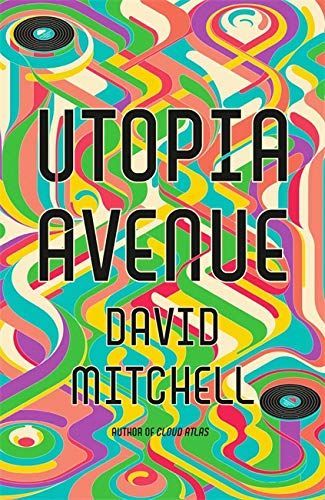
Utopia Avenue A Novel
The spectacular new novel from the bestselling author of CLOUD ATLAS and THE BONE CLOCKS, 'one of the most brilliantly inventive writers of this, or any country' (Independent). Utopia Avenue might be the most curious British band you've never heard of. Emerging from London's psychedelic scene in 1967, folksinger Elf Holloway, blues bassist Dean Moss, guitar virtuoso Jasper de Zoet and jazz drummer Griff Griffin together created a unique sound, with lyrics that captured their turbulent times. The band produced only two albums in two years, yet their musical legacy lives on. This is the story of Utopia Avenue's brief, blazing journey from Soho clubs and draughty ballrooms to the promised land of America, just when the Summer of Love was receding into something much darker - a multi-faceted tale of dreams, drugs, love, sexuality, madness and grief; of stardom's wobbly ladder and fame's Faustian pact; and of the collision between youthful idealism and jaded reality as the Sixties drew to a close. Above all, this bewitching novel celebrates the power of music to connect across divides, define an era and thrill the soul.
Reviews
Beth Bartholomew@BooksNest
Ryan Mateyk@the_rybrary
Joe@joe2267
ellie 💐💌⭐️@elliebennett
Jayme Cochrane@jamesco
Lynn@lynncornelissen
Mary Rose Luksha@mayroundstone
Fraser Simons@frasersimons
Cindy Lieberman@chicindy
Andrew Marti@amarti
Tim Vos@roquentin
Ivana Varesko@ivanav
Mario Menti @mario
Tillie@3tills
Emma Hak-Kovacs@18emkova05
Jennifer@thecrazybookseller
Halle Moir@hallemoir
Tori Townsend@torirose
Will Vunderink@willvunderink
Hannah Swithinbank@hannahswiv
Lennart Tondeleir@lennarttondeleir
Mark@mflfc68
Tanlyn Roelofs@tanroe
heleen de boever@hlndb